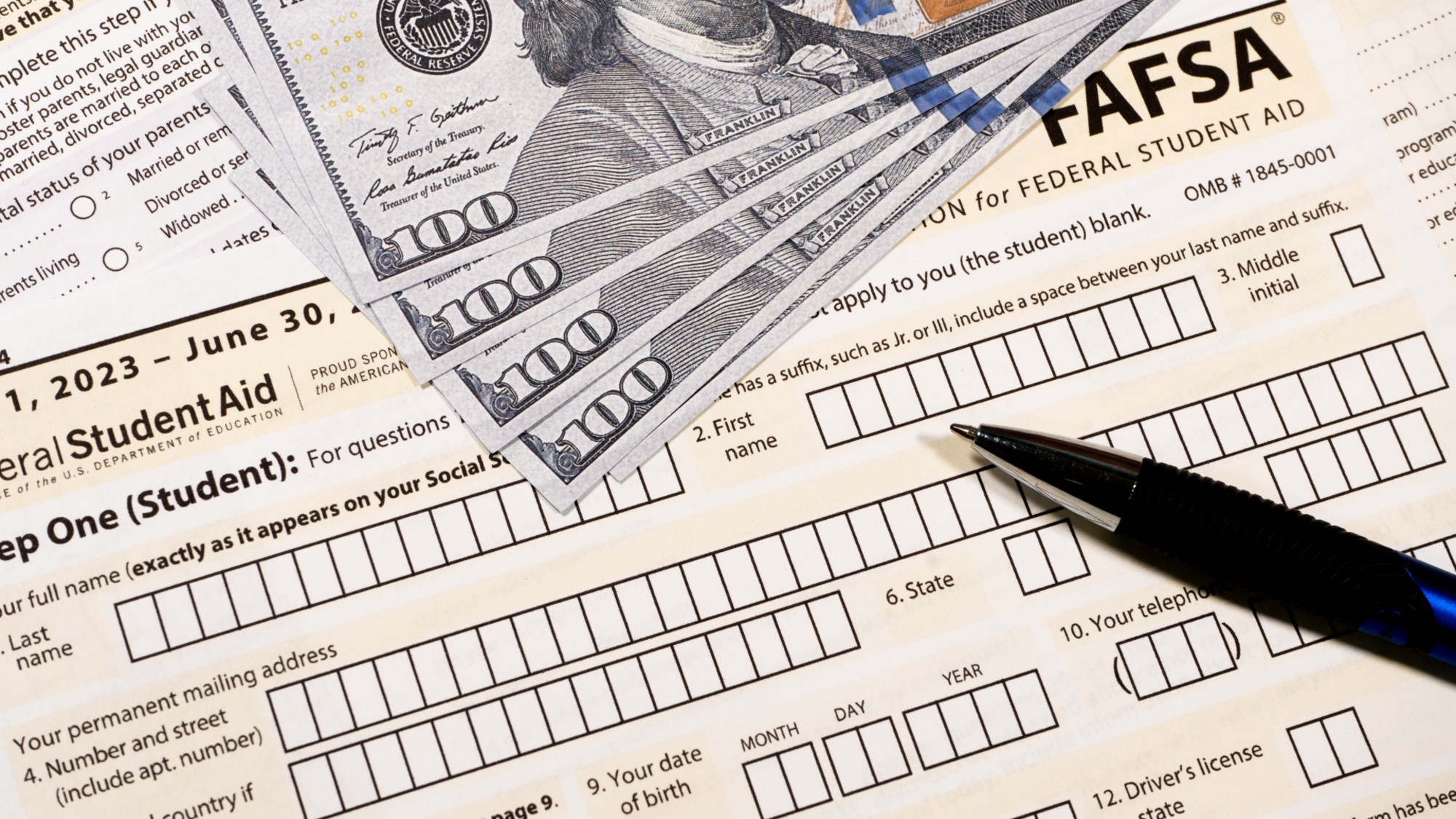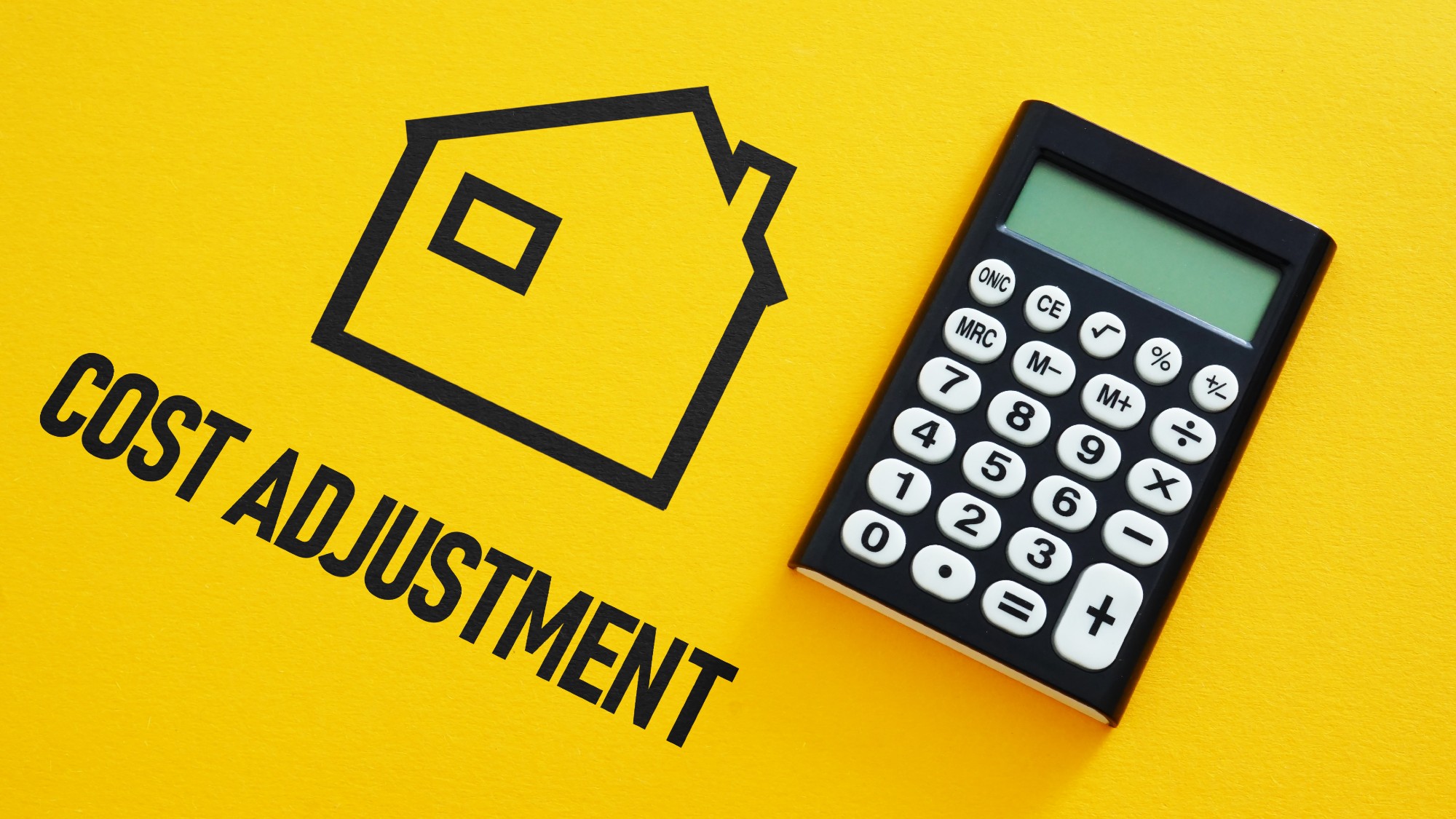The financial changes to expect in 'Awful April'
As the new financial year begins, it brings changes for bills, wages and tax

A free daily email with the biggest news stories of the day – and the best features from TheWeek.com
You are now subscribed
Your newsletter sign-up was successful
Millions of households are facing higher bills from this week in what is being dubbed "Awful April".
Despite "some respite" from rising wages and benefits, "budgets are expected to be squeezed", said The Guardian. Everything from council tax to energy bills is set to go up from this month as the new financial year begins.
Annual bills are expected to rise by more than £400 on average, "prompting fresh calls for government intervention", said The Independent.
The Week
Escape your echo chamber. Get the facts behind the news, plus analysis from multiple perspectives.

Sign up for The Week's Free Newsletters
From our morning news briefing to a weekly Good News Newsletter, get the best of The Week delivered directly to your inbox.
From our morning news briefing to a weekly Good News Newsletter, get the best of The Week delivered directly to your inbox.
It's "bad news" for your wallet, said MoneyWeek, and comes as inflation "more broadly is on the rise again".
Wages
Full-time workers are set to be £1,400 better off, said Gov.uk, as the National Minimum Wage and National Living Wage both increased from 1 April.
The National Living Wage for those aged 21 and over rose from £11.44 per hour to £12.21 per hour.
The National Minimum Wage for 18- to 20-year-olds rose from £8.60 to £10 per hour.
A free daily email with the biggest news stories of the day – and the best features from TheWeek.com
The apprenticeship rate, and for 16- to 17-year-olds, rose from £6.40 per hour to £7.55 per hour.
But while the government claims this will put "more money in people's pockets", said The Sun, "many are not convinced" – especially with other bills rising.
Council tax
Local authorities can increase council tax bills by up to 4.99% but six – Bradford, Newham, Windsor and Maidenhead, Birmingham, Somerset and Trafford – have been given "special permission" to exceed the cap this year, said MoneyWeek.
Checking your home's council tax band "could save you some money", added the financial website. If yours has been put in a more expensive band in error, you could "be due a bill reduction and potentially even a council tax refund".
Energy bills
The energy price cap has increased by 6.4% to £1,849 per year for a standard variable tariff.
An average household paying by direct debit for gas and electricity will pay an extra £111 per year.
Those on variable tariffs may face "large fluctuations" in their bills, said London's The Standard, and many energy suppliers are offering fixed-price deals to attract customers, "undercutting the price cap".
But the "rule of thumb" when deciding whether to move to a fixed tariff, said MoneySavingExpert Martin Lewis, is that you will save money "if you find a fix for up to 5% less than the new price cap".
Broadband and mobile phone bills
Millions of broadband and mobile phone customers are facing mid-contract price hikes and some will rise by the rate of inflation, said the Daily Mail, while "others may face fixed hikes depending on when they signed up or upgraded".
Industry regulator Ofcom has banned inflation-linked mid-contract price rises since January 2025 and suppliers must now instead set out how much the increases will be in pounds and pence.
This means customers with cheaper bills will end up paying "far more", said the Daily Mail, while those on "older and more expensive contracts" will see the largest increases.
Water bills
Water bills are rising by up to £10 per month on average but it will depend on your region and supplier.
For example, Southern Water bills are set to jump by 47% to £703 per year, while Anglian customers are paying 19% more at £626.
The increases are front-loaded for the first five years, said BBC News, so the "biggest rise is coming this year".
Unlike with energy bills, you can't choose your water company. So, this means you either absorb the financial hit or "see if you can cut back on consumption", said The Guardian.
With costs rising, added MoneyWeek, you should look to increase your savings and most financial planners recommend an emergency savings pot to "cover at least three to six months of essential spending" or "even more" – up to three years – if you are retired.
Marc Shoffman is an NCTJ-qualified award-winning freelance journalist, specialising in business, property and personal finance. He has a BA in multimedia journalism from Bournemouth University and a master’s in financial journalism from City University, London. His career began at FT Business trade publication Financial Adviser, during the 2008 banking crash. In 2013, he moved to MailOnline’s personal finance section This is Money, where he covered topics ranging from mortgages and pensions to investments and even a bit of Bitcoin. Since going freelance in 2016, his work has appeared in MoneyWeek, The Times, The Mail on Sunday and on the i news site.
-
 6 exquisite homes with vast acreage
6 exquisite homes with vast acreageFeature Featuring an off-the-grid contemporary home in New Mexico and lakefront farmhouse in Massachusetts
-
 Film reviews: ‘Wuthering Heights,’ ‘Good Luck, Have Fun, Don’t Die,’ and ‘Sirat’
Film reviews: ‘Wuthering Heights,’ ‘Good Luck, Have Fun, Don’t Die,’ and ‘Sirat’Feature An inconvenient love torments a would-be couple, a gonzo time traveler seeks to save humanity from AI, and a father’s desperate search goes deeply sideways
-
 Political cartoons for February 16
Political cartoons for February 16Cartoons Monday’s political cartoons include President's Day, a valentine from the Epstein files, and more
-
 Six ways to boost your finances in 2026
Six ways to boost your finances in 2026The Explainer It’s not too late to make a new year’s resolution to finally get organised money-wise
-
 How your household budget could look in 2026
How your household budget could look in 2026The Explainer The government is trying to balance the nation’s books but energy bills and the cost of food could impact your finances
-
 What are Pell Grants and who do they benefit?
What are Pell Grants and who do they benefit?The Explainer These are grants, not loans — meaning students do not have to repay the funds, but they must first meet certain conditions
-
 What to know about the latest Social Security cost-of-living adjustment
What to know about the latest Social Security cost-of-living adjustmentThe Explainer A slightly more substantial increase for 2026, though not by much
-
 How to earn extra cash for Christmas
How to earn extra cash for ChristmasThe Explainer The holiday season can be expensive but there are ways to bolster your festive finances
-
 What is dynamic pricing, and how will its increasing adoption affect your wallet?
What is dynamic pricing, and how will its increasing adoption affect your wallet?Speed Read The practice of adjusting prices based on demand is becoming more common
-
 The importance of discussing and dealing with debt
The importance of discussing and dealing with debtThe Explainer Increasing numbers of people have 'problem debt' – but there are ways to tackle it
-
 Energy worries drive sales of blankets and air fryers
Energy worries drive sales of blankets and air fryersSpeed Read Consumers prioritise energy-efficient purchases and cut back on non-essentials